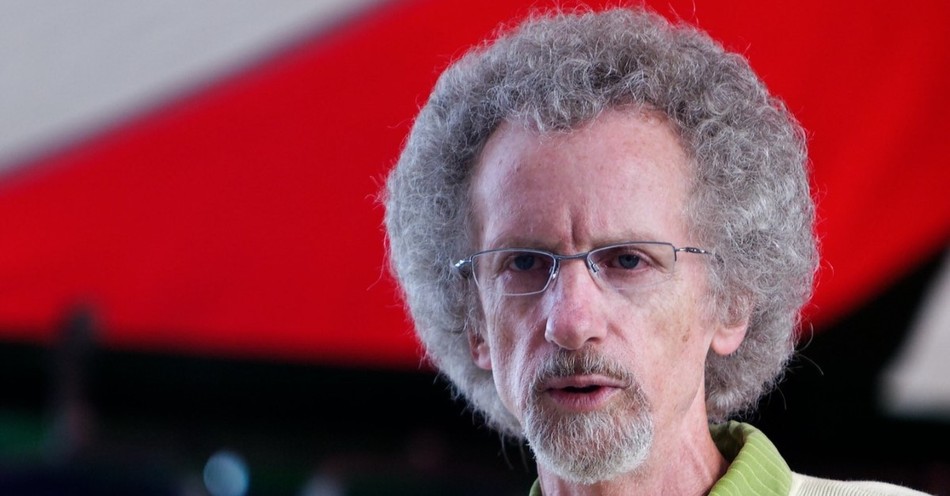Philip Yancey is one of the most prolific Christian writers of the twenty-first century. His books have been compared to Frederick Buechner, C.S. Lewis, and his works continue to inspire millions of years readers every year to find freedom and joy through the grace of Christ.
So what makes his work attractive to Christians and non-Christians alike?
What Is Philip Yancey Known For?
Philip Yancey is known for writing about the depths of Christ’s agape love, what prayer actually is, and the honest existential questions many people ask about God’s existence, doubt, and faith. Yancey’s first book, After the Wedding, was published in 1976. The book is an honest account of how different married couples survived challenging years of their marriage by the grace of God.
Yancey won the Christian Book of the Year Award in 1996 for The Jesus I Never Knew and in 1998 for What’s So Amazing About Grace?
In The Jesus I Never Knew, Yancey recounts how his idea of Jesus growing up was nothing like the Jesus of faith and history that he came to know and love later in his life. Yancey explores the first-century historical context of when Jesus of Nazareth walked the earth and how his teachings became distorted by cultural fundamentalism.
What’s So Amazing About Grace? is a poignant book about how the grace of Christ is more than enough to restore and redeem broken sinners. Yancey uses historical examples of different poets, writers, artists, and personal stories of unworthy flawed sinners being redeemed by a good and loving God. In theological language, grace is defined as something unmerited. In the Christian story, this grace is lavished upon humanity through Christ’s sacrifice on the cross and his glorious resurrection.
How Did Philip Yancey’s Early Life Impact His Work?
Yancey was born in 1949 in Atlanta, Georgia. His mother, Mildred, grew up in a difficult environment where she was taught a theology that discouraged her from asking questions or expressing any anger towards God (even the healthy anger the Psalmists express). The goal was simply to obey.
Yancey grew up with the consequences of his mother’s strict theology, followed by new problems. While Yancey and his brother, Marshall, were still children, their father died from polio. Their mother raised them in a strict Baptist environment, treating anything outside her experience (such as reading anything other than the King James Bible) as dangerous.
In Where the Light Fell, Yancey fully details this painful period—including the financial problems his mother faced and the racial segregation he experienced at church. At 18, Yancey discovered family records showing that his father died because he had voluntarily gone off life support, convinced God had told him that he would be healed and become a missionary in Africa. The discovery devastated Yancey. Over time, it helped him understand the trauma that his mother handled by becoming legalistic.
While Yancey’s painful upbringing led him and Marshall to question Christianity, he eventually returned to it. Through asking existential questions, Yancey embraced faith in Christ of his own volition rather than simply being a nominal Christian.
Yancey critiques the toxic fundamentalism he grew up in throughout his memoir yet writes about the environment with compassion. He never throws rocks; he uses wit and grace to describe the pain and the moments of goodness in that time, treating everyone he encountered as fallible human beings.
The balance shows why Yancey’s writings can be so compelling and encouraging—especially when American culture seems so polarized.
When Did Philip Yancey Start Writing?
In Where the Light Fell, Yancey recounts how he started taking writing seriously in high school. Initially, it was not easy. He was raised in Christian circles that didn’t value the arts, seeing them disconnected from real life. Too often, creativity was treated as something frivolous that could lead people astray from the path of righteousness. Yancey struggled for years with how to how to ask honest questions about God, suffering, love, the afterlife, and art, when even asking such questions was seen as sinful.
Ultimately, his English teacher Mr. Craig helped Yancey experience the power of language and story through books like 1984, Animal Farm, Brave New World, To Kill A Mockingbird, Hamlet, Lord of the Flies, and The Great Divorce. These books by authors in very different cultures helped Yancey see other worldviews besides his own—that there were other ways of viewing things than the church he had grown up in. The books also made Yancey feel less alone, giving him the confidence to pray about seeking a vocation as a writer.
He found his voice as a writer through the writings of G.K. Chesterton, C.S. Lewis, Fyodor Dostoevsky, and others. He also learned that reason and faith are not mutually exclusive, which changed his life. His heart and mind were not in conflict. He could appreciate the limits of finite human understanding and see faith not as a delusion but a virtue, a gift from Christ.
Yancey went to Columbia Bible College (now Columbia International University) for his undergraduate degree, where he met his future wife, Janet. He then went to Wheaton College for his M.A. and received a second M.A. from the University of Chicago in 1990.
In 1970, Yancey married Janet and became an editor for Campus Life Magazine in 1971. Yancey’s work editing the magazine prepared him for what proved to be a great career. He became a renowned journalist contributing to publications like Christianity Today, the author of over 20 books, and a speaker to numerous churches, colleges, and universities worldwide.
In the 1980s, Yancey played an important role in something he hadn’t experienced growing up: a Christian writer’s community. In 1986, he joined 16 other writers at Christ Haven Retreat Center in Colorado to discuss a group that would promote challenging, spiritually-nourishing Christian literature. The result was the Chrysostom Society, whose members include classic writers like Richard J. Foster, Eugene Peterson, Madeleine L’Engle, Walter Wangerin, and Robert Siegel.
10 Inspiring Philip Yancey Quotes
1. “One of the greatest things about writing as a profession is that the words of Tolstoy, Chesterton and Dostoyevsky have lived for a hundred years and are just as powerful today. Their words have changed me just as much as the people I actually met.” — Publishers Weekly interview
2. “I wrote a book on grace, and grace is a free gift, but to receive the gift you have to have your hands open. And a lot of people don’t have their hands open, there’s something they’re grasping because there’s a lot of things to grasp in a prosperous country.” — The Christian Post interview with Lillian Kwon
3. “If you had asked me 20 years ago the definition of sin I’d have said it was God’s way to keep us from having a good time . . . Now, I’d say God is trying to keep us from hurting ourselves. I am learning to view sins as spiritual dangers—much like carcinogens, bacteria, viruses and injuries—that must be avoided at all costs, for my own sake.” — Crosswalk.com interview with Rob Oller
4. “The world says you gain your life by getting more and more and more and more, but Jesus says, ‘No, that leads to death. You get it back by giving it away and when you give it away you get it back.” — The Christian Post interview Maria Mackay
5. “Trust does not eliminate the bad things that may happen, whatever sparked our fear in the first place. Trust simply finds a new outlet for anxiety and a new grounding for confidence: God. Let God worry about the worrisome details of life, most of which are out of my control anyway.” — Crosswalk.com excerpt from Rumors of Another World: What on Earth Are We Missing?
6. “You are free to reject God. Make sure that you’re really rejecting God, not some caricature of God that the church has shown you. But I, one, respect a God who not only allows us to reject Him but includes the arguments we can use against Him in the Bible. I respect that.” — Mackay interview
7. “One who has been touched by grace will no longer look on those who stray as ‘those evil people’ or ‘those poor people who need our help.’ Nor must we search for signs of ‘love worthiness.’ Grace teaches us that God loves because of who God is, not because of who we are.” — What’s So Amazing About Grace?
8. “Prayer is a declaration of dependence upon God.” — Prayer: Does It Make Any Difference?
9. “It is one thing to say, ‘Well, God is good because I live in a nice suburban home and my children are all Olympic athletes and making all As in school.’ But what good is God if you are in a prison being persecuted for your faith? What good is God if you are on the Virginia Tech campus, and this rampage breaks out? That is to me the tabletop test of faith.” — Crosswalk.com interview with Shawn McEvoy and Ryan Duncan
10. “Above all else, grace is a gift, one I cannot stop writing about until my story ends.” — Where The Flight Fell
10 Great Books by Philip Yancey
These books give a great sense of Yancey’s range across his years of writing.
1. Where the Light Fell: A Memoir
2. What’s So Amazing About Grace?
3. The Jesus I Never Knew
4. Disappointment With God: Three Questions No One Asks Aloud
5. Prayer: Does It Make Any Difference?
6. Where Is God When It Hurts?
7. Soul Survivor: How Thirteen Unlikely Mentors Helped My Faith Survive The Church
8. Reaching for the Invisible God
9. The Bible Jesus Read: Why the Old Testament Matters
10. Vanishing Grace: Bringing Good News To A Deeply Divided World
Photo Credit: Dean Ayres/Flickr
Justin Wiggins is an author who works and lives in the primitive, majestic, beautiful mountains of North Carolina. He graduated with his Bachelor's in English Literature, with a focus on C.S. Lewis studies, from Montreat College in May 2018. His first book was Surprised by Agape, published by Grant Hudson of Clarendon House Publications. His second book, Surprised By Myth, was co-written with Grant Hudson and published in 2021. Many of his recent books (Marty & Irene, Tír na nÓg, Celtic Twilight, Celtic Song, Ragnarok, Celtic Dawn) are published by Steve Cawte of Impspired.
Wiggins has also had poems and other short pieces published by Clarendon House Publications, Sehnsucht: The C.S. Lewis Journal, and Sweetycat Press. Justin has a great zeal for life, work, community, writing, literature, art, pubs, bookstores, coffee shops, and for England, Scotland, and Ireland.
This article is part of our People of Christianity catalog that features the stories, meaning, and significance of well-known people from the Bible and history. Here are some of the most popular articles for knowing important figures in Christianity:
How Did the Apostle Paul Die?
Who are the Nicolaitans in Revelation?
Who Was Deborah in the Bible?
Who Was Moses in the Bible?
King Solomon's Story in the Bible
Who Was Lot's Wife in the Bible?
Who Was Jezebel in the Bible?
Who Was the Prodigal Son?




_639045351253598148.jpg)